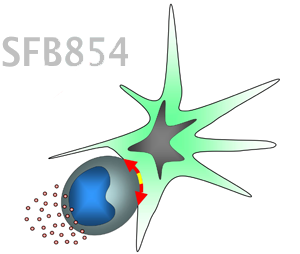Speaker: Prof. Dr. Daniela Krause, Institut für Tumorbiologie und Experimentelle Therapie, Frankfurt
Date: Thursday, 15th of June 2017, 5:15 pm
Location: Campus FME, Hörsaal Kinderklinik (Haus 10)
Host: Prof. Dr. Berend Isermann (OvGU, Institut für Klinische Chemie und Pathobiochemie)
Further Information: Prof. Krause's group aims to target the bone marrow microenvironment as an adjunct to existing therapies. Haematological cancers have a high frequency amongst the general population and pose a major health care problem. Significant progress has been made in the treatment of leukaemia. The treatment of chronic myelogenous leukaemia (CML) was revolutionized by targeted therapy in the form of imatinib mesylate. However, targeted therapy is not curative and at least 61% of patients relapse when imatinib is discontinued. Rare quiescent leukaemia-initiating cells (LIC) or leukaemic stem cells (LSC) in CML and acute myeloid leukaemia (AML) appear to be resistant to tyrosine kinase inhibitors (TKIs) and other chemotherapeutic regimen, possibly due to LSC-protective effects by the BMM, leading to disease progression and relapse. Overall, the 5-year survival rate of adults with leukaemia is only 44%, and for adults with AML only 25% will live for 5 years. This warrants the search for novel, adjunct therapies.




